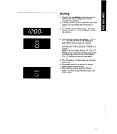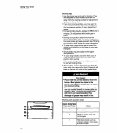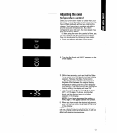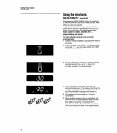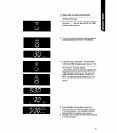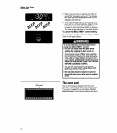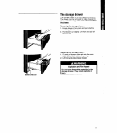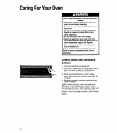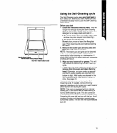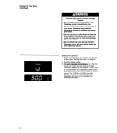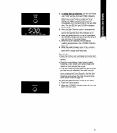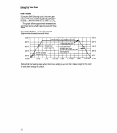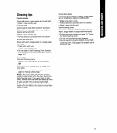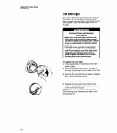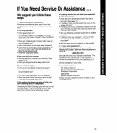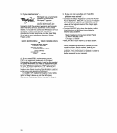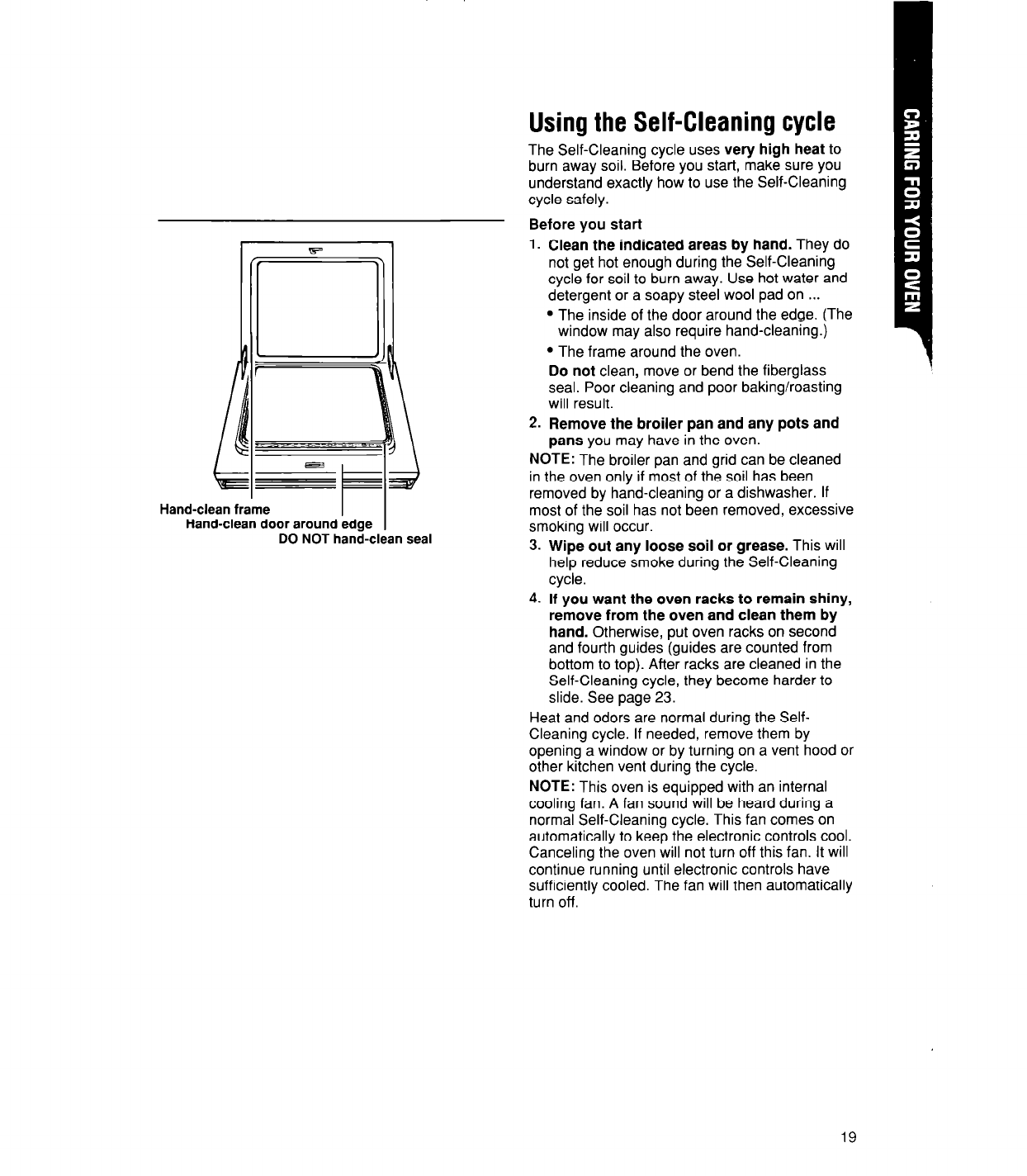
Using the Self-Cleaning cycle
The Self-Cleaning cycle uses very high heat to
burn away soil. Before you start, make sure you
understand exactly how to use the Self-Cleaning
cycle safely.
I
Hand-clean frame
Hand-clean door around edge 1
DO NOT hand-clean seal
Before you start
1. Clean the indicated areas by hand. They do
not get hot enough during the Self-Cleaning
cycle for soil to burn away. Use hot water and
detergent or a soapy steel wool pad on . . .
l
The inside of the door around the edge. (The
window may also require hand-cleaning.)
l
The frame around the oven.
Do not clean, move or bend the fiberglass
seal. Poor cleaning and poor baking/roasting
will result.
2. Remove the broiler pan and any pots and
pans you may have in the oven.
NOTE: The broiler pan and grid can be cleaned
in the oven only if most of the soil has been
removed by hand-cleaning or a dishwasher. If
most of the soil has not been removed, excessive
smoking will occur.
3. Wipe out any loose soil or grease. This will
help reduce smoke during the Self-Cleaning
cycle.
4. If you want the oven racks to remain shiny,
remove from the oven and clean them by
hand. Otherwise, put oven racks on second
and fourth guides (guides are counted from
bottom to top). After racks are cleaned in the
Self-Cleaning cycle, they become harder to
slide. See page 23.
Heat and odors are normal during the Self-
Cleaning cycle. If needed, remove them by
opening a window or by turning on a vent hood or
other kitchen vent during the cycle.
NOTE: This oven is equipped with an internal
cooling fan. A fan sound will be heard during a
normal Self-Cleaning cycle. This fan comes on
automatically to keep the electronic controls cool.
Canceling the oven will not turn off this fan. It will
continue running until electronic controls have
sufficiently cooled. The fan will then automatically
turn off.
19



